Updated 12/18/2021
Dialectical behavior therapy (DBT) is a form of psychotherapy initially developed in the late 1980s. DBT was created for the purpose of treating patients diagnosed with borderline personality disorder and suicidal thoughts. Today, DBT has proven successful in treating substance abuse and addiction, as well as severe mental illness cases.
What Is DBT Therapy?
Although DBT has its roots in cognitive behavioral therapy, several modifications and additions to treatment routines have occurred. The main goals of DBT are to teach people how to live in the moment, develop healthy coping mechanisms for stress, regulate emotions, and improve relationships with others. The treatment methodology around DBT incorporates three essential assumptions.
- All things are interconnected.
- Change is constant and inevitable.
- Opposites can be integrated to form a closer approximation of the truth.
During DBT sessions, the patient and the therapist work together to resolve any perceived contradiction between self-acceptance and change to bring about positive changes in the individual. Along with a push for change, the idea of validation is vital to DBT treatment. It has been found that with validation (in conjunction with a push towards change), patients are less likely to suffer distress from the idea of change. During sessions, the therapist validates that the person’s actions “make sense” within the context of their personal experiences without necessarily agreeing that their actions are the best solution to the individual’s problem.
How Is DBT Therapy Used in Addiction Treatment?
The goal of DBT is to help the individual seeking treatment to build a life they can enjoy living again. DBT has proven to be very successful in treating those who have been struggling with substance abuse and for whom other treatment methods have not worked. DBT promotes the use of change and acceptance. Using this approach, addicts can gradually learn to deal with everyday problems (triggers) without extreme emotional activity, which often leads to substance use.
Those who struggle with substance abuse often do so because they turn to alcohol or drugs as a means of coping with difficult emotions. DBT provides education and skills training to help manage these emotions. Using DBT, substance use, and addictive behaviors can be replaced with healthy coping skills and emotions brought under control without turning to substances.
DBT therapy consists of four components that are used together to help addicts recover from their dependence on drugs and alcohol. These include the following.
Skills Training
Skills training typically occurs in a group setting where participants can learn new life skills necessary for coping with triggers after they leave treatment. These sessions usually meet weekly. Although groups focus on skill development, the vital feature of DBT is not reserved solely for once-weekly meetings. Skills are also taught and practiced during individual therapy sessions.
Individual Therapy
Individual therapy sessions allow for focused, one-on-one work with a therapist. These sessions can help promote ongoing motivation and allow for time to practice new skills.
When used in a drug or alcohol addiction treatment setting by trained providers, DBT has proven to be highly successful in reducing substance abuse as well as self-harming or suicidal behavior that can sometimes accompany substance abuse disorders (or co-occurring mental health conditions). Skills developed during DBT sessions can help recovering addicts learn to cope with difficult, triggering situations in a healthy way. These skills are essential in overcoming reliance on substances and will help to prevent relapse.
Crosspointe Recovery Is Here for You
If you or a loved one struggles with an addiction to alcohol or drugs, don’t wait to seek treatment. Research has proven early intervention is key to successful treatment and recovery. At Crosspointe Recovery in Sherman Oaks, California, our goal is to help you achieve sobriety and lead a healthy, productive, and substance-free life. Our highly experienced addiction treatment staff has more than 20 years in the field of addiction treatment and a passion for caring for our patients and their families. Don’t wait another day. Contact Crosspointe Recovery today.





